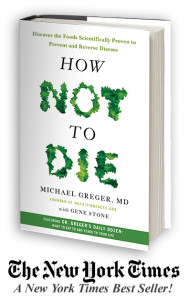Every now and then, a topic will pop up in conversation several times during the week. I consider that my "cue" to address the topic. Lately, the subject of PROTEIN has been mentioned quite a bit. People consuming a whole-food, plant-based diet can still be a bit worried that they're not getting enough protein. If they lack energy or get into some other type of slump, protein deficiency is often the first thing that comes to their minds; sometimes they mistakenly confuse hunger signals with a lack of protein as well.
So let me assure all of you plant-eaters out there. For those who are consuming a whole-food, plant-based diet, AND are consuming enough calories every day, it would be impossible that their protein needs would not be met. Think about it - have you ever known anyone to be 'protein deficient'? I highly doubt it (unless the person is not eating enough calories).
All foods contain three macronutrients: Carbohydrate, Fat and Protein. Plant foods contain every nutrient we need, including protein (all of the amino acids) required for human growth. The healthiest diet for humans is 80-10-10: 80% Carbohydrate, 10% fat and 10% protein. When eating a WFPB diet such as The 'Plan A' Diet, these numbers naturally fall into place and you don't have to worry about it.
We just live in a society where PROTEIN has been promoted as the be-all and end-all nutrient. Manufacturers have not overlooked our obsession with protein, and are quick to take advantage of it at every opportunity. How much protein do you need every day? And how much are you actually consuming? Those are two questions that most people cannot answer. Our protein needs are actually quite low, and a plant-based diet easily meets the requirements.....you can read about that in Dr. T. Colin Campbell's article. Even mother's breast milk, which provides protein at the crucial stage of a baby's growth, is only 5% protein.
Have you been told that Animal Protein is better than Plant Protein? Wrong! Read why here.
On the other end of the spectrum, EXCESS protein in the American diet leads to many health issues, which you can read about here (kidney and liver issues, osteoporosis, cancers and more). Steer clear of the high-fat, high-protein diets, which are known to destroy health and can be quite dangerous.
Here are some helpful links on the topic of protein:
Dr. McDougall's article: When Friends Ask "Where do you Get Your Protein?"
Dr. McDougall's short video on the topic here.
To get a rough idea of how many GRAMS of protein you need, this PCRM Article may be of help. A plant-based diet can easily provide at least 60 grams per day.
Great sources of protein include beans, greens, grains (quinoa is the highest in protein), lentils, whole soy foods, steel cut oats, potatoes, nuts, seeds, and basically all plants. There are thousands of easy recipes, too! Think about Black bean/quinoa soup (just omit the oil), No-Fu Love Loaf, Chef AJ's Quinoa Salad, or a Chocolate Tofu Pudding - all delicious and packed with protein! And the nice part is, you don't have to make gourmet recipes...... it can be as simple as a bean burrito, a potato topped with McDougall soup, a bowl of whole-grain pasta with mushroom marinara, or a quickly-prepared chili with a whole grain, seeded roll.
Do you have a simple recipe you'd like to share?

